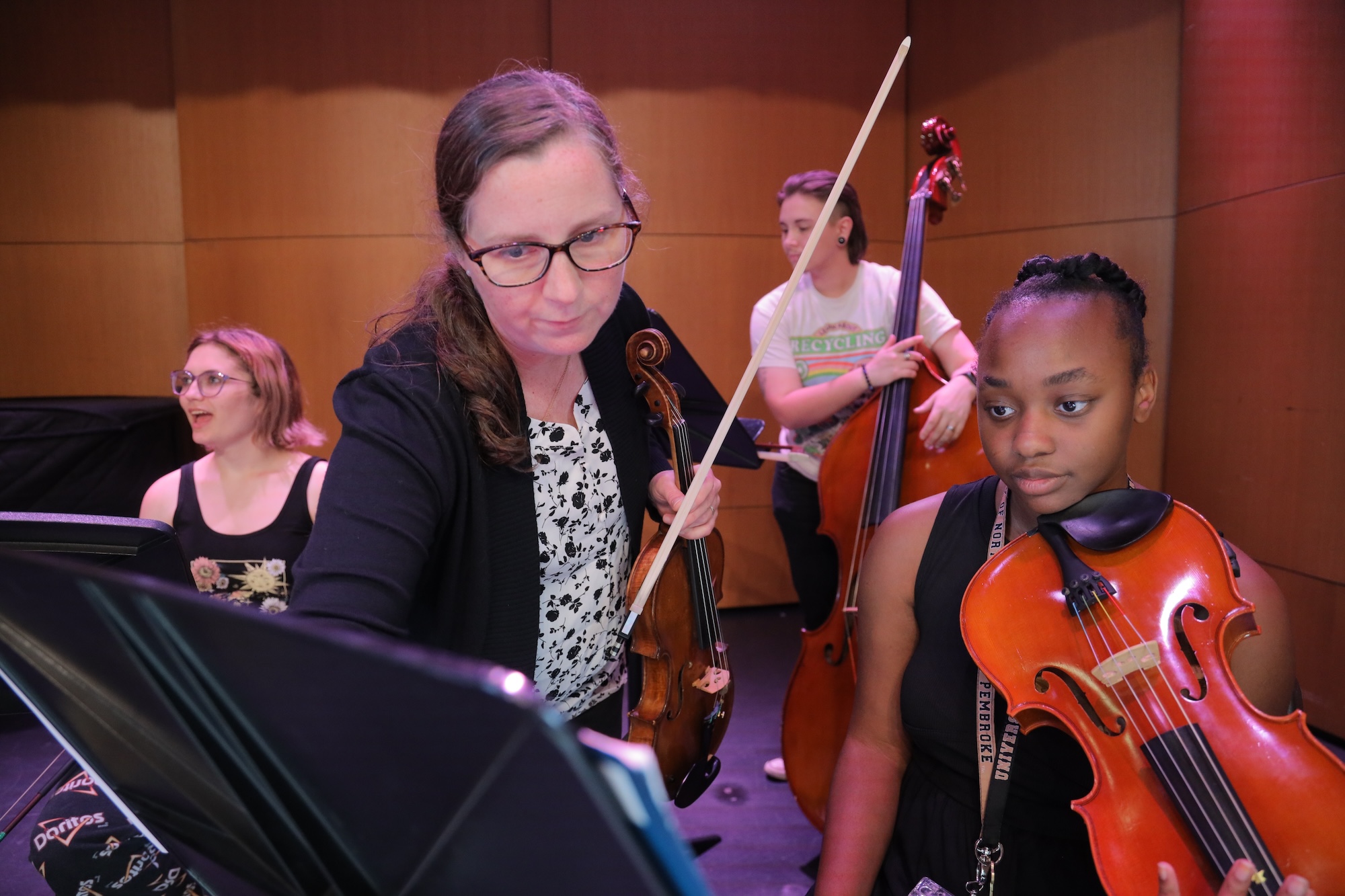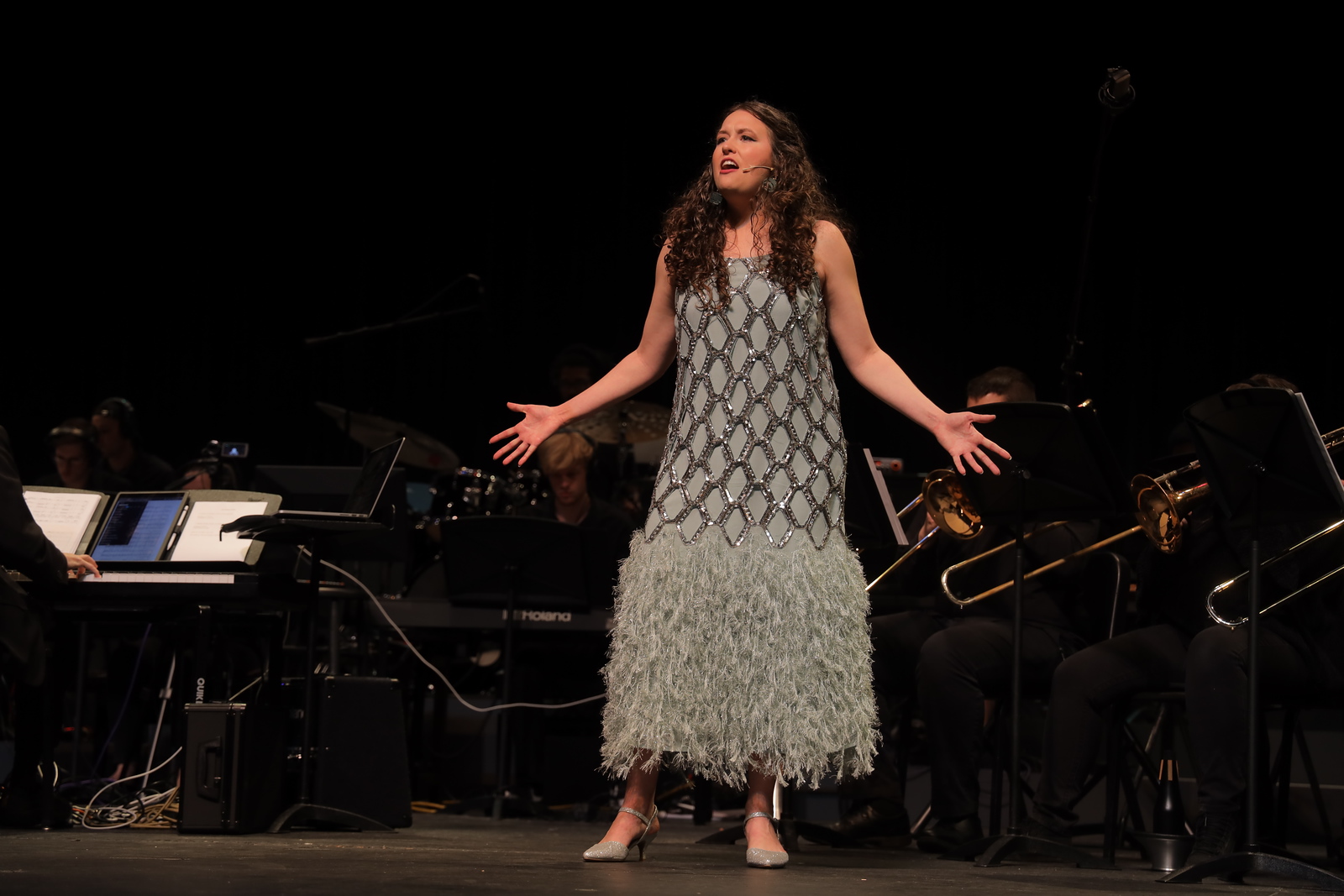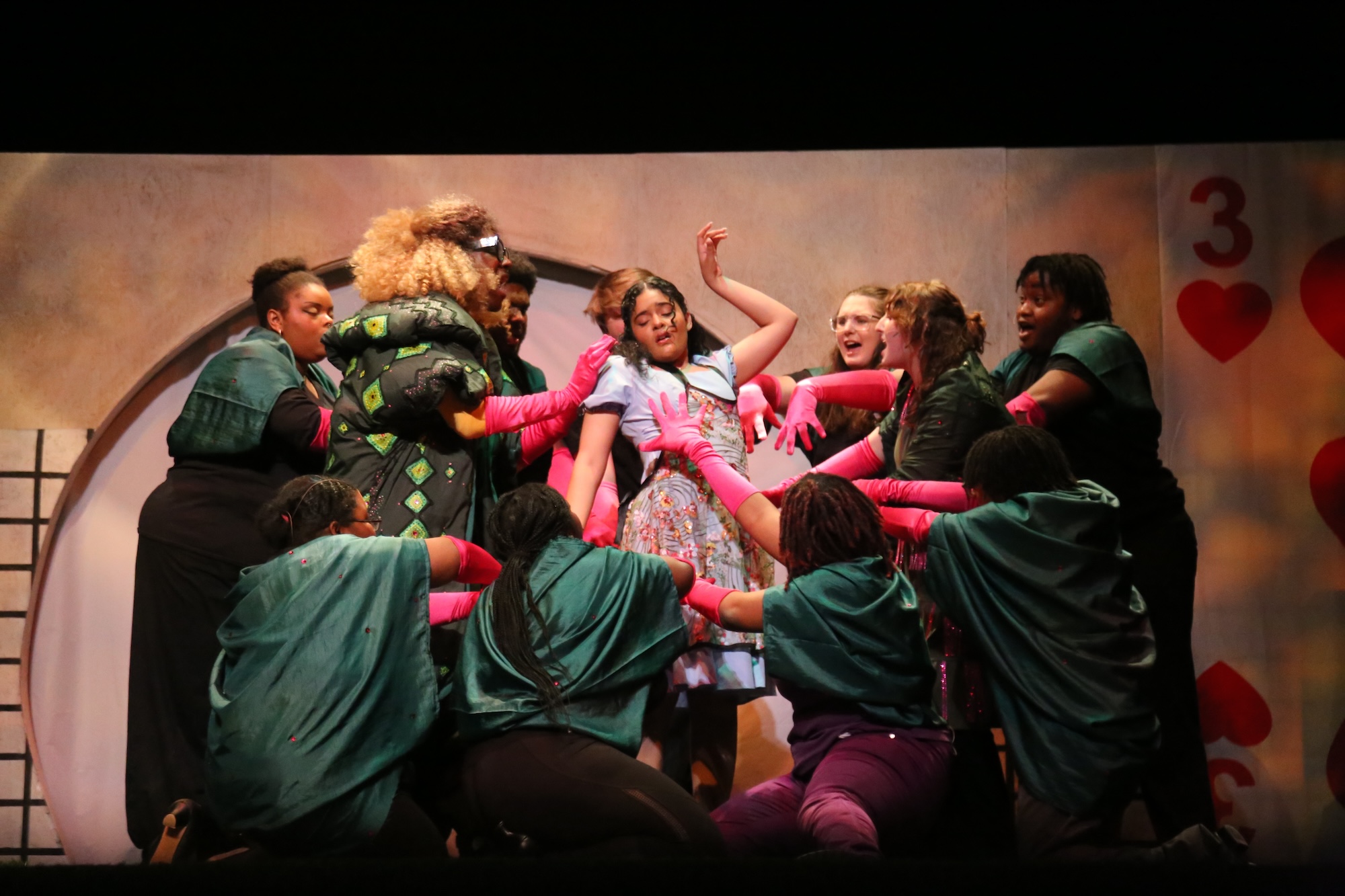To join the UNCP Music program, prospective majors and minors must complete a supplemental music application and audition to demonstrate proficiency in their primary instrument or voice. Requirements vary by area and may include prepared pieces, scales or sight-reading. Auditions can be completed in person or virtually.
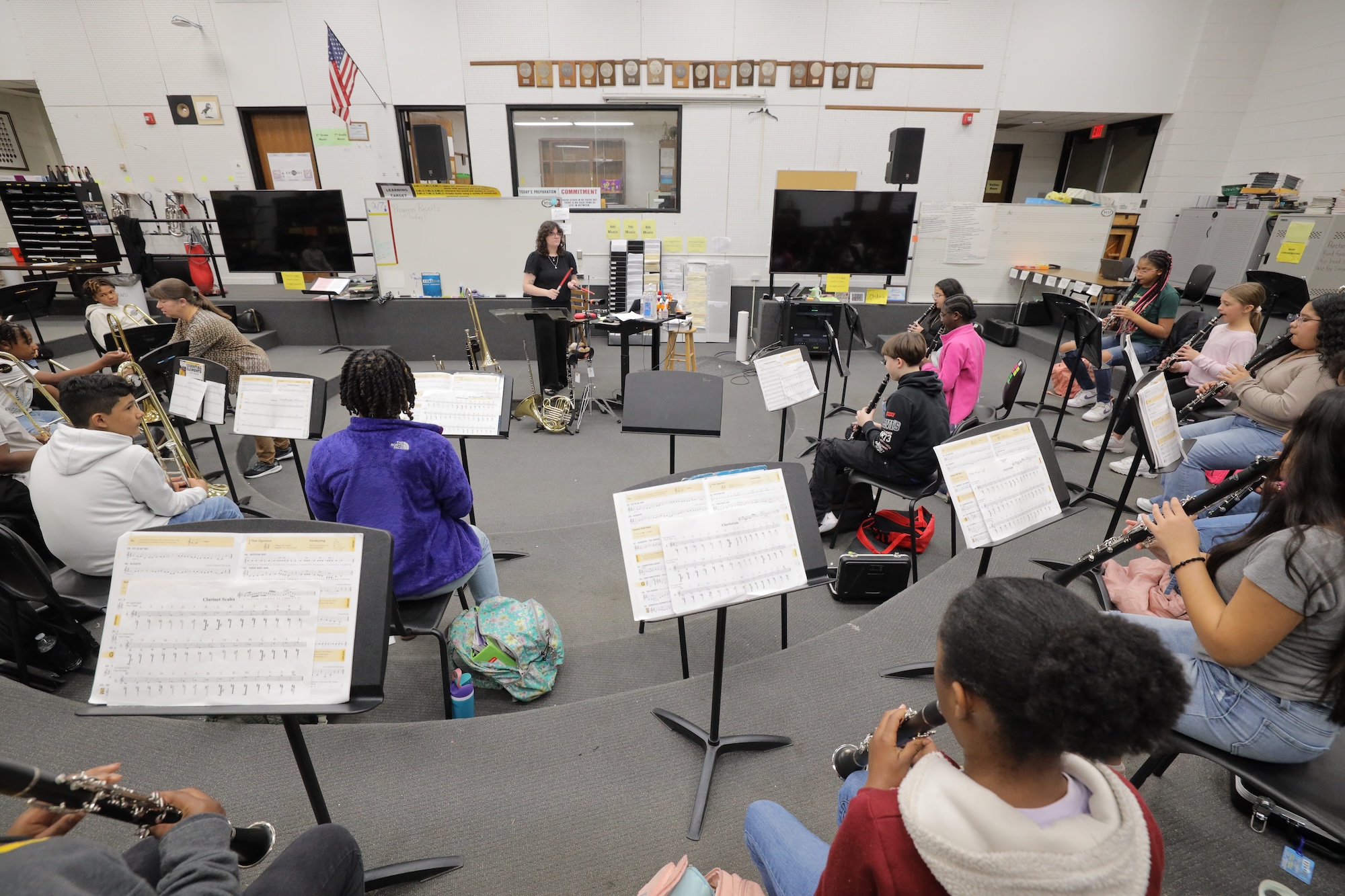
Music Education
Want to teach music and launch your career? UNC Pembroke's Bachelor of Music in Music Education (K-12) program is known for strong job placement. You'll study vocal and instrumental music, build your foundation through liberal arts and gain early classroom experience. Build your skills and graduate ready to lead.
Focus Areas
Instrumental, Keyboard, Vocal
About Music Education
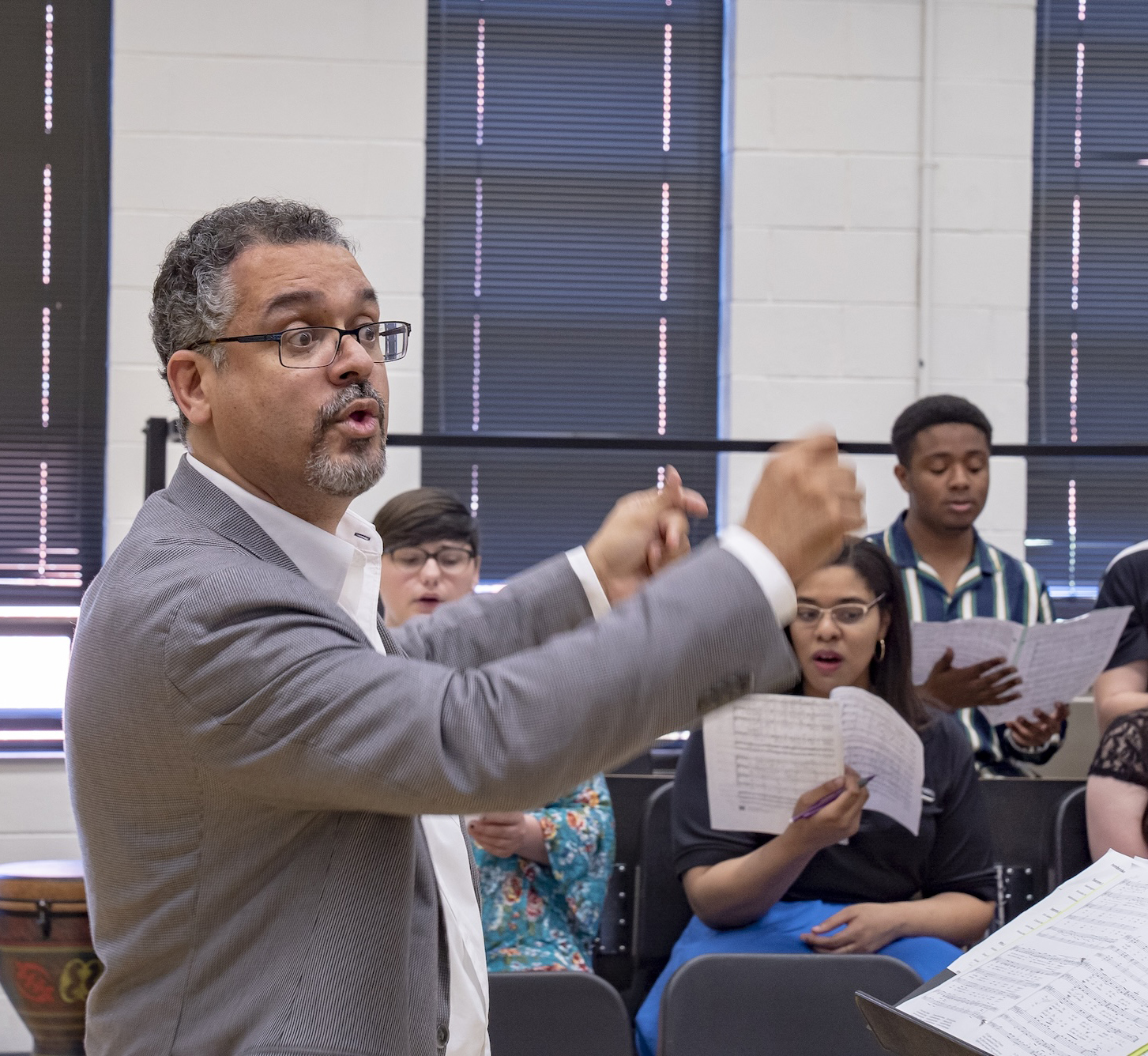
Program Requirements
The program of study in Music Education consists of four curricular components: freshman seminar and general education, the specialty area, professional studies and content pedagogy (methods and internship). Upon successfully completing the program and related requirements, graduates are eligible for a Standard Professional I license to teach in the State of North Carolina. The NC Department of Public Instruction issues the teaching license based on university recommendation.
The Music Education program is one of 12 teacher education programs offered at UNCP.
Music Education majors are subject to Teacher Education Program policies, admission
requirements, continuation requirements and graduation requirements.
The goal of the Music Education program is to provide comprehensive training for teachers
of vocal and instrumental music. These students will have a solid foundation in the
liberal arts and musical experiences which will develop their cultural sensitivity
while providing programs and concerts to enrich the cultural life of the university
and the community.
Emphasis Program Requirements:
Instrumental Emphasis
Keyboard Emphasis (Instrumental Orientation)
Keyboard Emphasis (Vocal Orientation)
Vocal Emphasis
Program Highlights
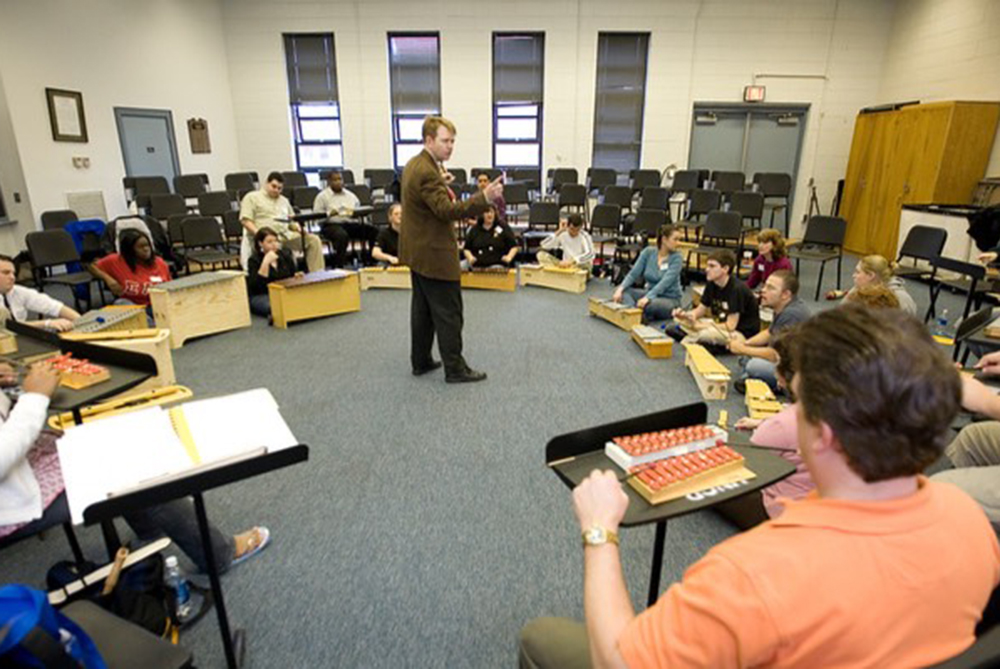
Field Experience
Put your teaching skills into practice early. As a Music Education major, you'll observe, assist and teach in real K–12 classrooms — well before your final semester. Prepare for your full-time student teaching internship and gain the confidence to lead your own classroom after graduation.

Play in an Ensemble

Apply to be a Music Major
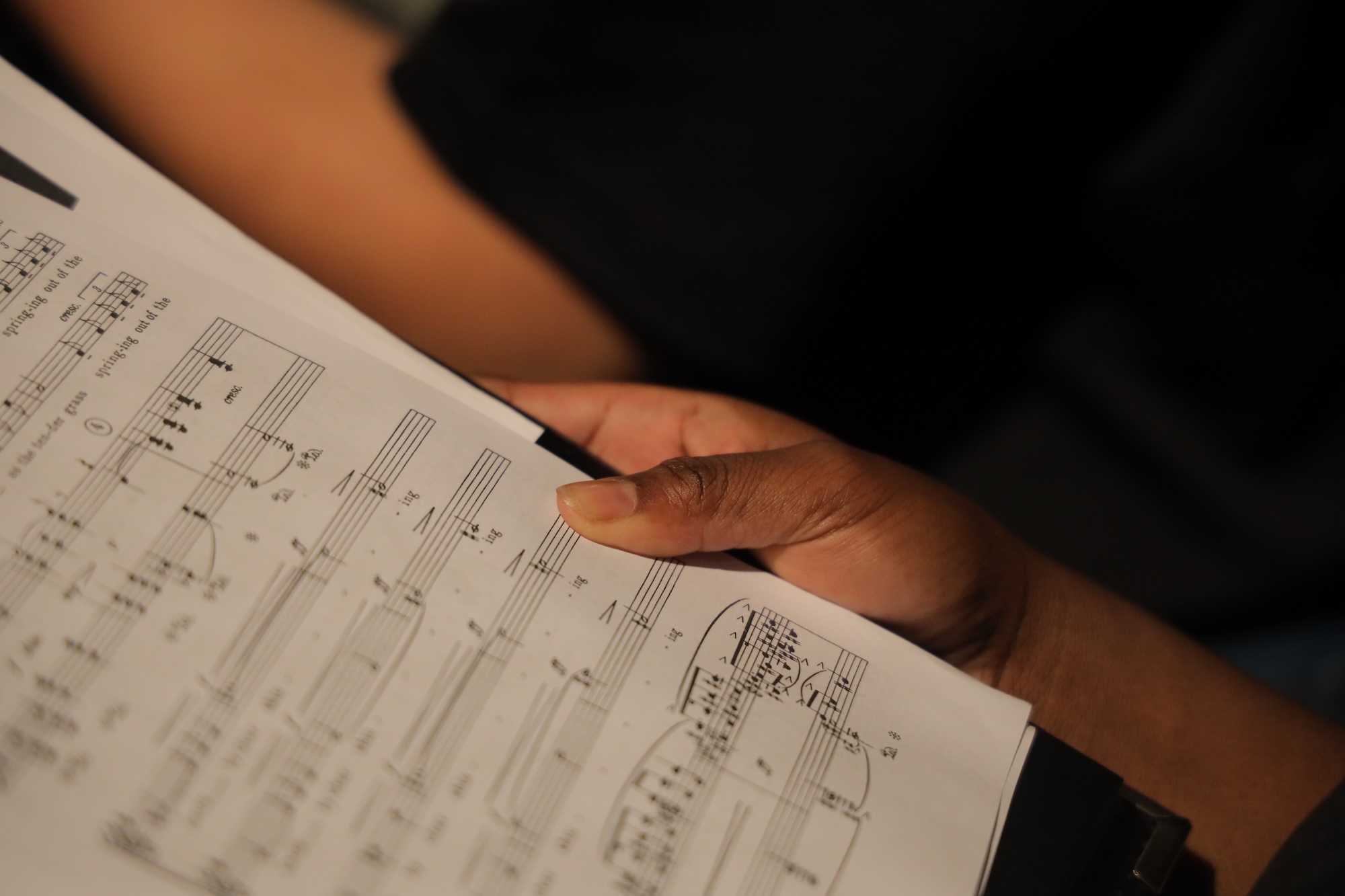
Audition Requirements
If you're ready to turn your passion for music into a college experience, you'll need to apply to both UNC Pembroke and the Music department. All prospective music majors must also complete an audition as part of the admission process. It's your first step toward joining a vibrant community of performers, educators and creators. Music Application
- Sing two songs from memory with piano accompaniment.
- One can be a popular, sacred or musical theatre piece — anything that shows off your voice.
- The second should come from standard classical voice repertoire. A foreign language piece is strongly recommended.
- Vocal scholarship applicants will also be asked to sightread.
Contact: Dr. Jaeyoon Kim
- Perform two contrasting pieces (pianists are encouraged to play from memory).
- Play major scales, two octaves, hands together.
- Sightread a short piece.
Contact: Dr. Mark Tollefsen
- Perform one piece from your instrument's standard repertoire (accompaniment optional).
- Play major scales and arpeggios (range depends on the instrument).
- Sightread a short piece.
Contact: Dr. Tim Altman
- Play two pieces from standard repertoire.
- Perform major scales.
- Sightread a short piece.
Contact: Dr. Aaron Vandermeer
- Play one piece from your instrument's standard repertoire.
- Perform one major scale and arpeggio.
- Sightread a short piece.
Contact: Dr. Holland Phillips at 910.775.4285 or lucy.phillips@uncp.edu
All students wishing to major in music with a percussion emphasis, or to perform with the UNCP Percussion Ensemble must audition on snare drum, mallets and timpani. Suggested repertoire is as follows:
- Snare Drum:
- 1 concert solo or etude (Cirone, Delecluse, Lepak, Firth, etc.)
- Play a concert style roll which crescendos from piano to fortissimo and decrescendos back to piano over one minute.
- Optional : Rudimental Solo (Pratt, Wilcoxon, etc.)
- Keyboards:
- 1 two-mallet solo or etude (ragtime solos, all state etudes, etc.)
- Major scales and arpeggios
- Optional: Four-mallet solo (Peters, Smadbeck, Rife, etc.)
- Timpani:
- 1 solo or etude (Firth, Goodman, Hinger, Beck, etc.)
- Tuning and pitch matching will be tested.
- Optional Areas:
- Drum set
- World Percussion
- Mallet Improvisation
Keyboard and snare drum sight reading will be required of all who audition.
Contact: Dr. Joseph Van Hassel
Beyond Graduation
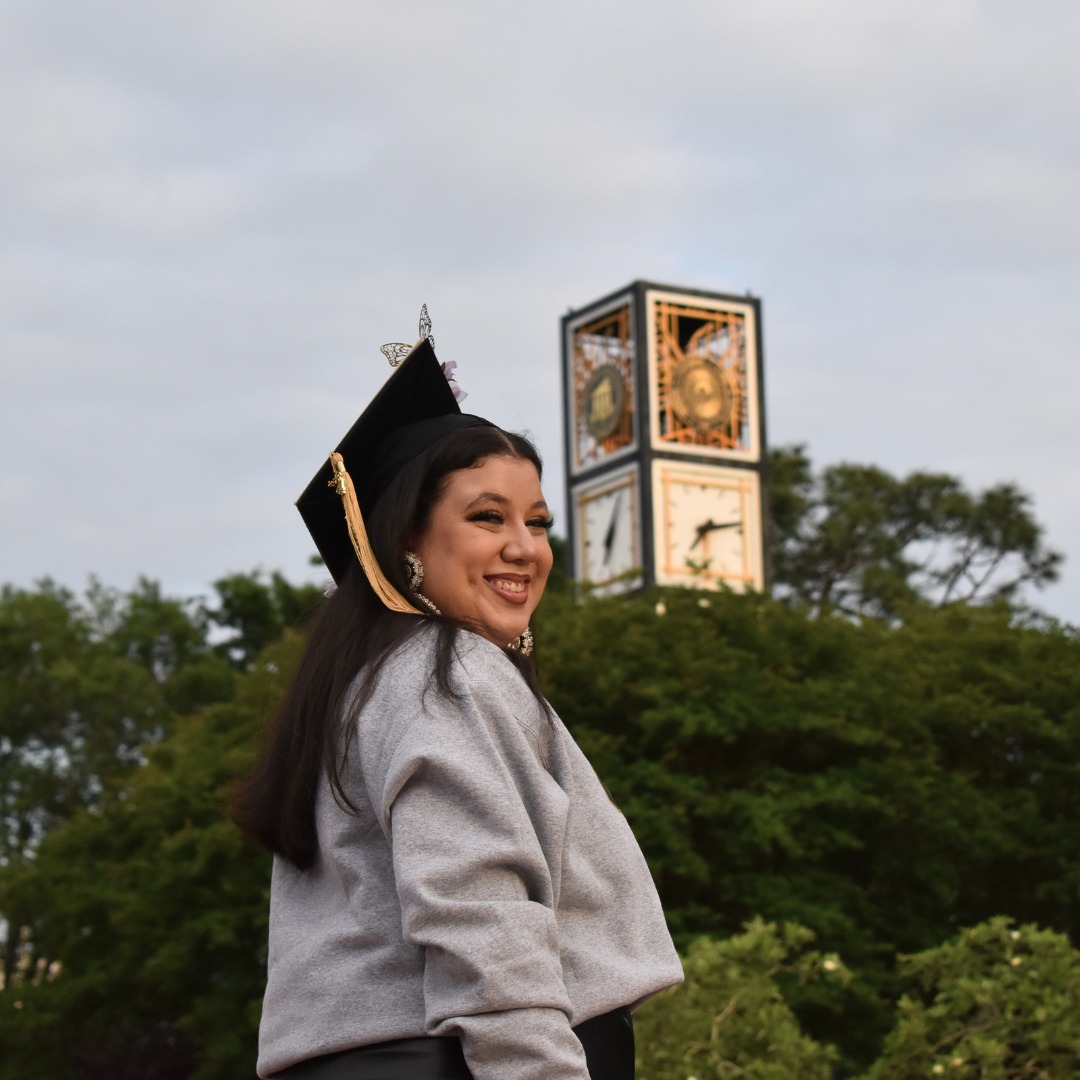
The sense of belonging and community UNCP has brought me is unlike any other, and I will forever cherish it. Some of my involvement on campus included being a Resident Advisor at Oak Hall, joining the Eta Beta Chapter of Sigma Alpha Iota, being a part of the Spirit Of The Carolinas marching band, and much more!
Ashley Arriaga
Common Careers
A degree in Music Education opens the door to a wide range of career paths, both within and beyond traditional classroom settings. Here are some common careers for someone with a music education degree:
- K–12 Music Teacher (general music, band, choir, orchestra)
- Private Instrument/Vocal Instructor
- Early Childhood Music Educator
- Special Education Music Specialist
- College/University Instructor (with further study)
- Conducting & Performance
- Band/Choir/Orchestra Conductor
- Church Music Director
- Accompanist or Collaborative Pianist
- Freelance Performer
- Session Musician or Studio Artist
- Administration & Leadership
- School Music Program Coordinator
- Arts Education Administrator
- Community Music Program Director
- Youth Ensemble or Festival Organizer
- Music Industry & Technology
- Music Publisher or Editor
- Audio Production/Recording Technician
- Music Software Trainer or Developer
- Music Licensing or Copyright Consultant
Music-Ready Spaces
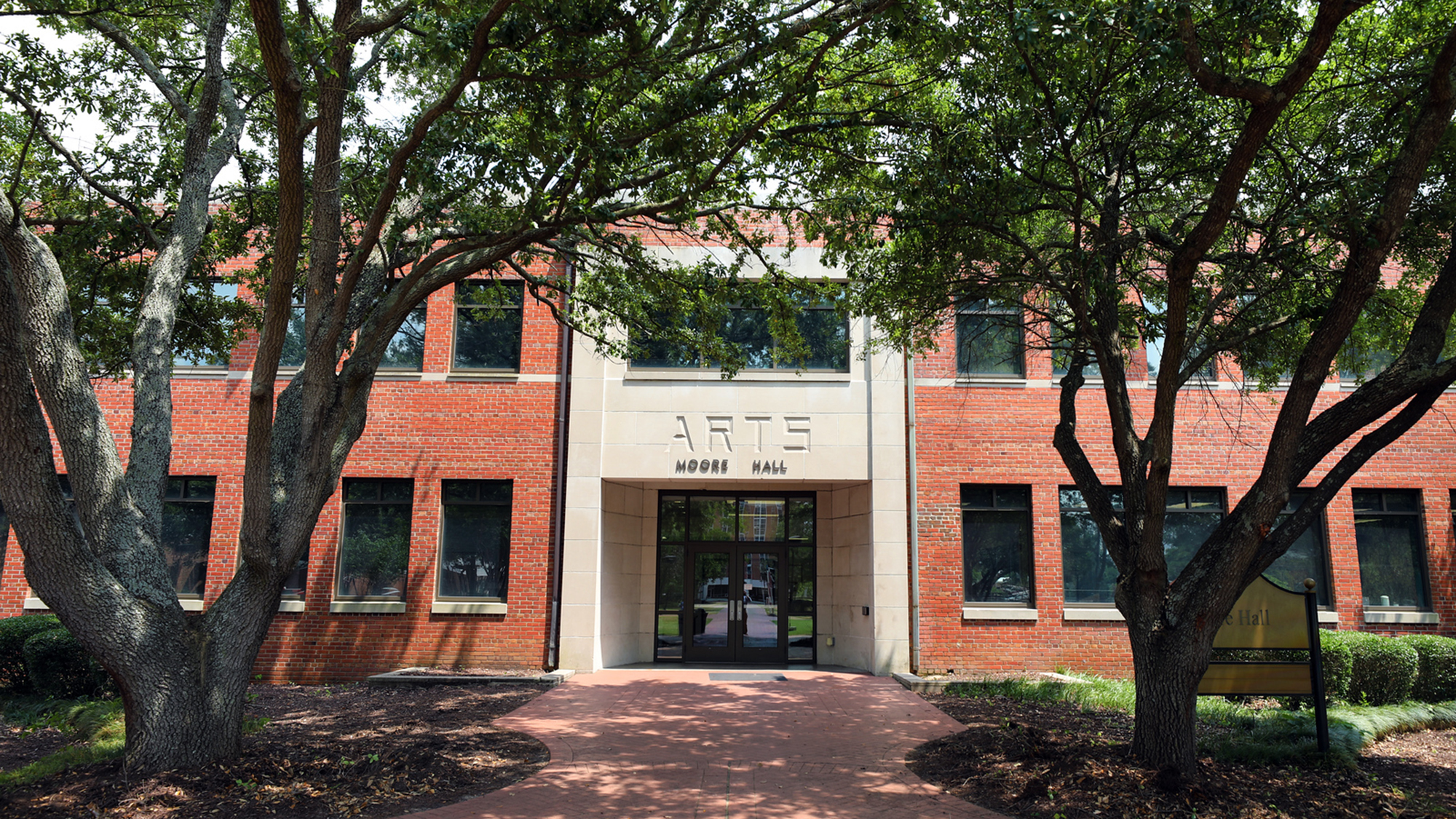
Moore Hall is complete with Steinway pianos, high-tech classrooms and a full recording studio.
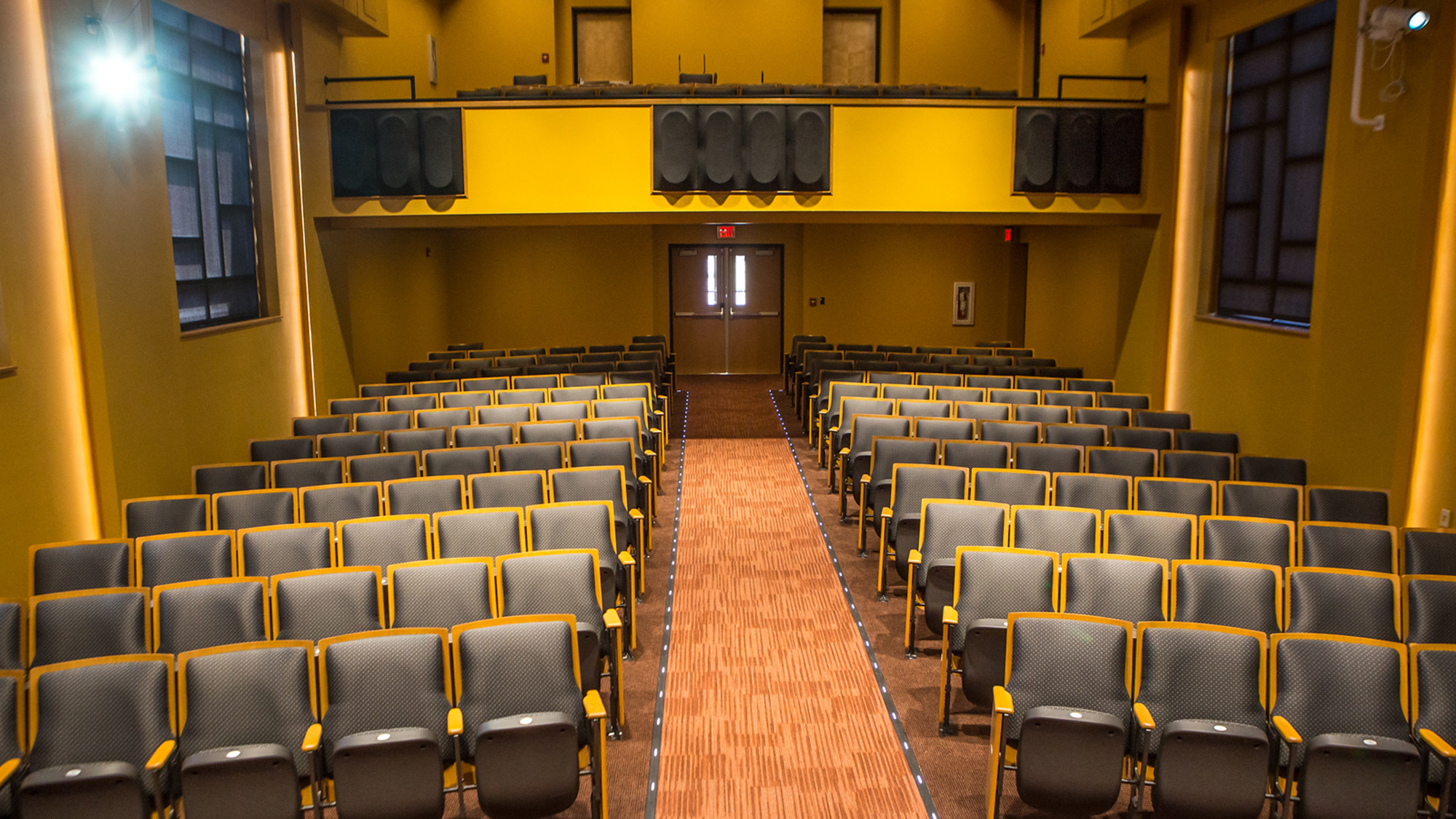
Moore Hall Auditorium hosts intimate concerts, recitals and guest artists.

Warm up, rehearse and refine your craft in our newly renovated Music Annex. It's home to practice rooms, vocal ensemble rehearsals and more.
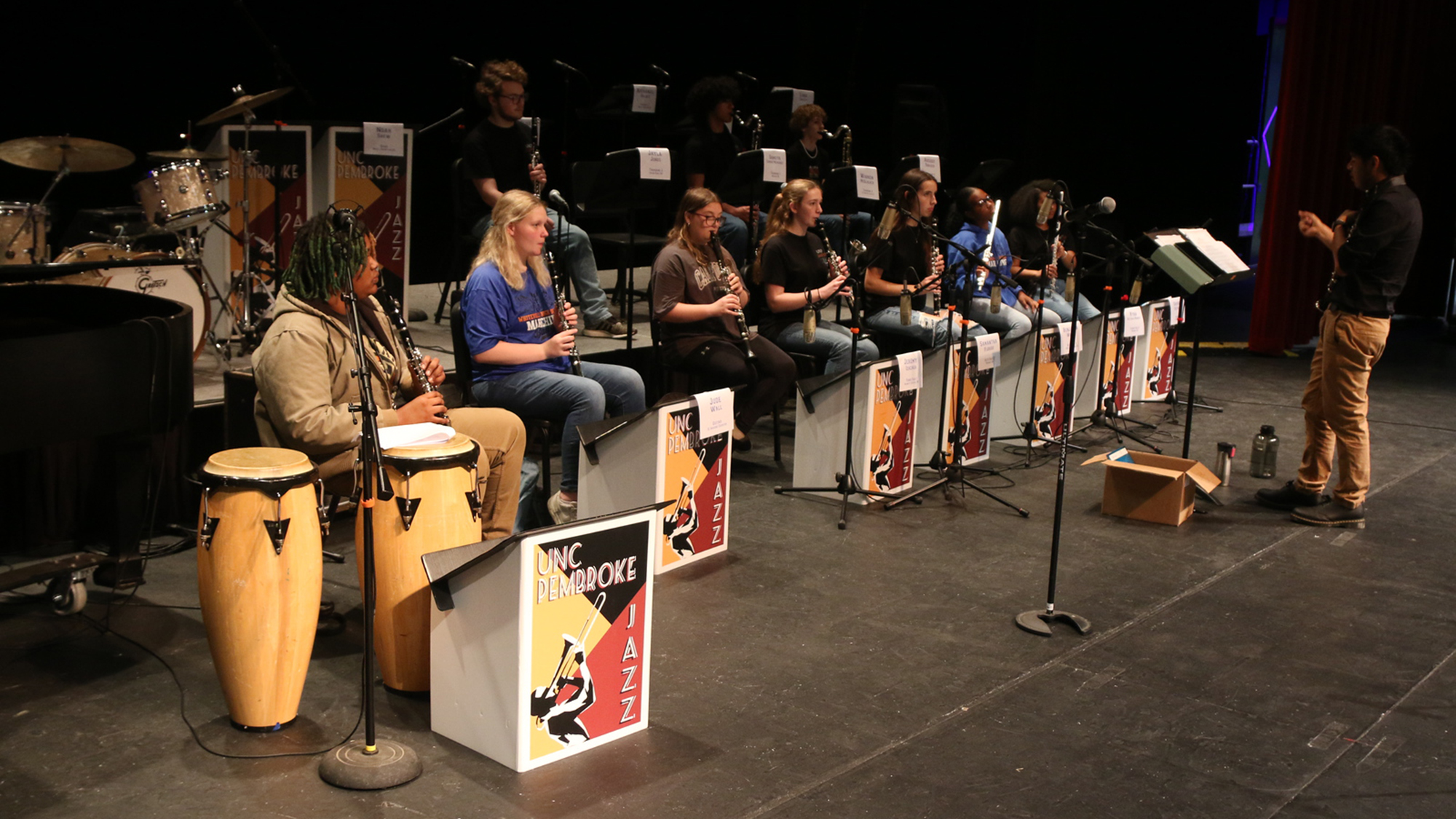
The Music Education program is accredited by the National Association for the Accreditation of Teacher Education (NCATE) and the NC State Board of Education.
Want to learn more?
or call us at 910.521.6262
Send us a message and one of our counselors will get back to you
Faculty


